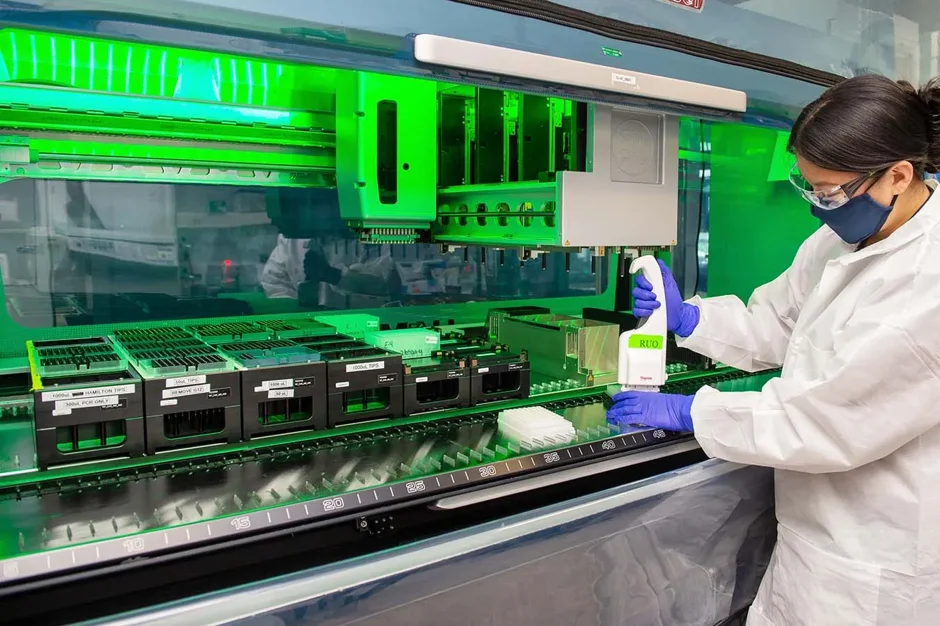Clinical whole genome sequencing test developed at JAX
Article | September 13, 2023
A decade ago, sequencing centers began offering clinical whole exome sequencing, but these only cover the portion of the genome that codes for proteins – approximately 1.5 percent of the entire genome. While relatively successful, the diagnostic yield for most clinical exome sequencing programs is roughly 25 percent, leaving 75 percent of cases without a diagnosis.
The power of whole genome sequencing
To improve the diagnostic power of sequencing and identify the genetic basis of disease, the Advanced Precision Medicine Laboratory (APML) at The Jackson Laboratory for Genomic Medicine in Farmington, Connecticut, is offering a fully validated, clinical whole genome sequencing test. The APML is CLIA certified and CAP accredited and the JAX Genome test is the only clinical whole genome sequencing test currently offered in Connecticut. It will enable area clinicians to reveal the genetic contributions to their patients’ undiagnosed conditions.
The JAX Genome test examines coding and noncoding regions of the genome to detect single nucleotide variants, insertions/deletions, repeat expansions, copy number changes and structural variations. The JAX Genome test includes DNA extraction from whole blood, sequencing of the genome, and variant analysis and interpretation. The final clinical report is issued within six to eight weeks of sample receipt through the APML portal.
In the case of critically ill and urgent cases, the JAX Rapid Genome option follows the same process as the JAX Genome, yet a preliminary report is issued within ten days of sample receipt, providing the opportunity to guide treatment sooner. The final report will still be given six to eight weeks after sample receipt. For all JAX Genome tests, additional family members’ samples can be sent for testing to clarify segregation of variants of interest and better characterize the genetic alterations observed.
For more information about the JAX Genome test, please contact [email protected].
